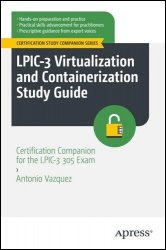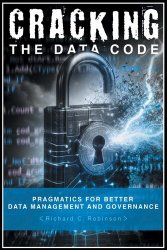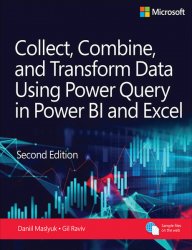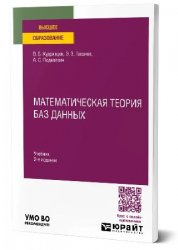- Добавил: literator
- Дата: 14-12-2024, 06:10
- Комментариев: 0
 Название: LPIC-3 Virtualization and Containerization Study Guide: Certification Companion for the LPIC-3 305 Exam
Название: LPIC-3 Virtualization and Containerization Study Guide: Certification Companion for the LPIC-3 305 ExamАвтор: Antonio Vazquez
Издательство: Apress
Год: 2024
Страниц: 751
Язык: английский
Формат: pdf
Размер: 27.1 MB
Get up to speed on the key topics required for the Linux Professional Institute's LPIC-3 305 exam, the third in the four part LPIC 3 certification, which covers virtualization and containerization. The wider LPIC-3 certification helps developers and system administrators become experts in a given context of Linux and Open Source solutions. This study companion is designed to sit alongside your studies and certification guides as you prepare for the exam and will take you through the three main areas of Full Virtualization, Container Virtualization as well as VM Deployment and Provisioning. We will undertake a deep dive of all the major topics, from the basics of virtualizations and containers to indepth break down of virtualization solutions like KVN, Xen and Proxmox and well as popular containers like Docker, Kuberentes, Openstack, Terraform, Packer, Vagrant and others with key concepts covered on the exam called out and applied in each chapter of this book, giving you both practice and reinforcement, a far more effective learning tool than rote learning or similar approaches typically enlisted in exam preparation.









